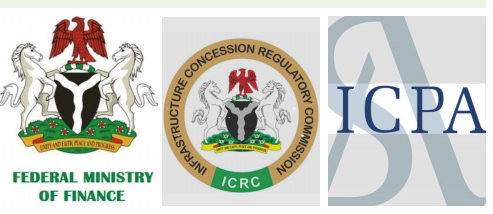In spite of the decision of the Federal Ministry of Finance and the Infrastructure Concession Regulatory Commission (ICRC), to keep mum since the deal was unearthed, the Track-and-Trace project, a procedure for stamping of products, machinery, beverages, drugs, etc, also known as T&T, have refused to settle down. The project was borne out of government’s desire to shore up revenue and block leakages, prevalent in public institutions.
As lofty as the proposed project is, the “new objection” certification granted to a Swiss firm by government through the Infrastructure Concession Regulatory Commission (ICRC), recently came under the searchlight of a Civil Society Organisation (CSO), Forum for Governance, Accountability and Transparent Business Practices in Nigeria (FGATBP). Other bodies have also raised eyebrows on the matter, calling for due process in the selection of the contractor billed to handle the project.
The Swiss company that provides Security printing-security inks for currencies and sensitive documents, including identity documents, passports, transport and lottery tickets is said to be reserved to carry out the project.
Recall that the federal government, in order to shore up national revenue against sourcing for external loans, is planning to introduce value-based track-and-trace stamping of consumer and industrial products manufactured in Nigeria.
The process, a very important revenue generation process, is however, embroiled in controversy before it’s take off.
FGATBP hinged its rejection of the
firm, Société Industrielle et Commerciale de Produits Alimentaires (SICPA), as the sole company for the deployment of
security stamp procedure on products and machineries, with a view to collecting taxes through the proposed T&Tdescribing the bidding process for the emergence of the company as alarming, especially given several media reports of alleged “Corruption against SICPA Security Solutions. Even as tongues began to wag, yet, the Ministry of Finance, appears bent to have proceeded with the company not withstanding.
“This raises serious questions about the integrity of the procurement process and its implications for Nigeria’s economic governance. In the past month, the media have revealed reports of a growing chorus of criticisms from reputable outlets,” according to a statement issued by the Executive Director, FGATBP, Dr Aisha Bello.
The statement quoted her as saying that, “as stakeholders committed to ethical governance and economic integrity, we are compelled to address these concerns directly to the Federal
Ministry of Finance (FMF), urging
immediate review of the proposed
partnership with SICPA Security
Solutions.” The group strongly opines that the Finance Ministry and ICRC appears to have proceeded without adequate transparency or due diligence.
FGATBP had argued that judging from the plethora of media reports, the ICRC’s “no objection” certification appears to have been granted without adequate public consultation or scrutiny. Therefore, it pointed out that “the
Federal Ministry of Finance’s apparent endorsement of SICPA under a Public-Private-Partnership (PPP), lacks the transparency expected in handling public funds and national resources Reports of ‘secret endorsements’ and attempts to suppress media coverage – such as approaches to editors to pull stories offline – suggest a deliberate efforts to evade accountability.
They noted: “This opacity contravenes the principles of good governance and due diligence, particularly when alternative providers offering fully digital, cost effective solutions exist. Paper-based systems like those proposed by SICPA are not only more expensive and disruptive, but also fail to deliver the efficiency and security that digital alternatives provide.
“As an organisation dedicated to
promoting ethical business practices and anti-corruption measures, FGATBP views this as a blatant disregard for due diligence. Awarding such a critical project – aimed at enhancing revenue collection and curbing illicit trade in tobacco, alcohol and spirit– to a firm with a documented corruption record risks tarnishing Nigeria’s international image and exposing it to financial vulnerabilities.
“It also undermines President Bola
Tinubu’s commitment to the fight
against corruption. This initiative, an indirect consumer tax, raises huge concern among Nigerian consumers who are already frightened by the proposed
fuel tax from 2026.
“We call on the Federal Ministry
of Finance to: Immediately suspend further engagement with SICPA pending a comprehensive and independent audit of the process, release the relevant documents, including tender evaluations, due diligence reports and conflict of interest declarations to the
public for scrutiny.”
They equally feel strongly that government should “conduct a fresh, open and competitive bidding process that prioritises companies with unblemished records and innovative, cost-effective digital solutions over outdated paper-based systems, and collaborate with anti-corruption agencies like the EFCC and ICPC to investigate the allegations and hold accountable, any official involved in bypassing standard procedures.
“FGATBP stands ready to partner
government, civil society and the
private sector to ensure that the T&T Project aligns with global best practices and serves the people’s interest. Transparency is not optional – it is the foundation of sustainable development,” it stated.
Aside the NGO, recall equally that the Organised Private Sector, including the Manufacturers Association of Nigeria (MAN), the Nigerian Association of Chambers of Commerce, Industries, Mines, Commerce and Agriculture (NACCIMA), and as well as doyens operating in the nation’s financial sector had all separately expressed mixed feelings over the “no objection” certificate granted the family-owned company founded in 1927 in Lausanne, Switzerland.
A top ICRC personnel who does not want his name in print, none the less, stoutly defended the agency saying the commission did nothing wrong in selecting SICPA as the preferred bidder for the Track-and-Trace revenue tax project the way they were selected.
He refuted allegations of side-stepping due process levelled against SICPA, insisting the procedures were well-known on Track-andTrace, pointing out that SICPA handles 80 percent of such contracts globally, hence they had no issues issuing the “No Objection” certificate to it.
Note that most of the agencies and groups against the process are relying on a memo from the Federal Prosecutor’s Office, Switzerland, dated 27th April, 2023, which fined the suspected company of $90.6 million, “due to organisational deficiencies,” and bribery of foreign nationals where they executed contracts.
Investigations have revealed that several months ago, the said company officials have been in Nigeria, “fraternising with top bureaucratic and political leaders, on their expertise and experiences”, but, the company, has sever image and reputation issues.
Findings have also shown that the company was indicted in similar activities (stamp duty contracts) in its home country, Switzerland of fraudulently bribing government agents in countries where it carried out business and subsequently fined.
Information gathered from the Communications Service at the Office of the Attorney-General of Switzerland (OAG) shows that the company was slammed “with a penalty order issued in accordance with Art. 102 para. 2 SCC in conjunction with Art.322septies SCC”.
“The OAG has accordingly ordered the company to pay a fine of CHF 1 million and imposed an equivalent claim for compensation amounting to CHF 80 million under Art. 71 para. 1 SCC,” it stated.
The said manager of the company was sentenced to a conditional prison term of 170 days.
“The order states that he paid bribes to high-ranking officials in the Colombian and Venezuelan markets between 2009 and 2011,” the sources added.
In addition, it was reported that the Federal Prosecutor in Switzerland, had initiated criminal proceedings against SICPA, which specialises in security inks for currencies and documents, in 2015 following a request for legal assistance.
Investigations have revealed that the company is known to have offered bribes in Brazil, Venezuela and Colombia and currently is undergoing probe include Egypt, Philippines, India, Kazakhstan, Pakistan, Senegal, Vietnam, and Ukraine, Zambia and Malawi.
It was also gathered that the Kenyan Parliament had summoned the Kenya Revenue Authority (KRA) over a tender for the supply of excise stamps following reports that the same company had been slammed with Shl 2.5 billion for bribing foreign public officials in the conduct of business.
Despite all these, the company had allegedly been awarded a track-and-trace contract by the federal government of Nigeria amidst the firm’s reputation which is tainted by allegations of systemic illegal practices, and investigations in several countries”.
As it is now, tongues are wagging over whose interests insisting on not making a review of the issues raised, is serving. Whatever interests there maybe, the anti-graft agencies have clarifications to make to Nigerians, except they gave their own nod too, which would be most unfortunate, as Nigerians desire nothing but open and transparent process, especially on issues of public procurement and accountability.









